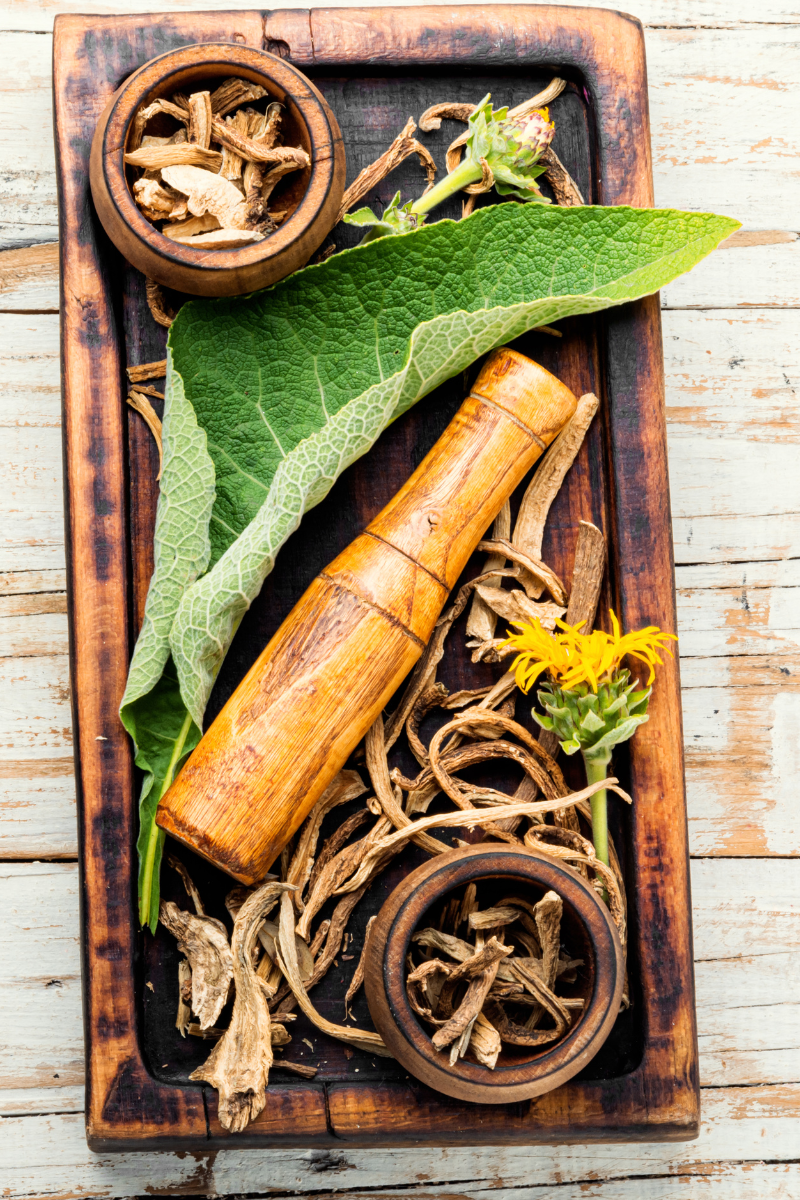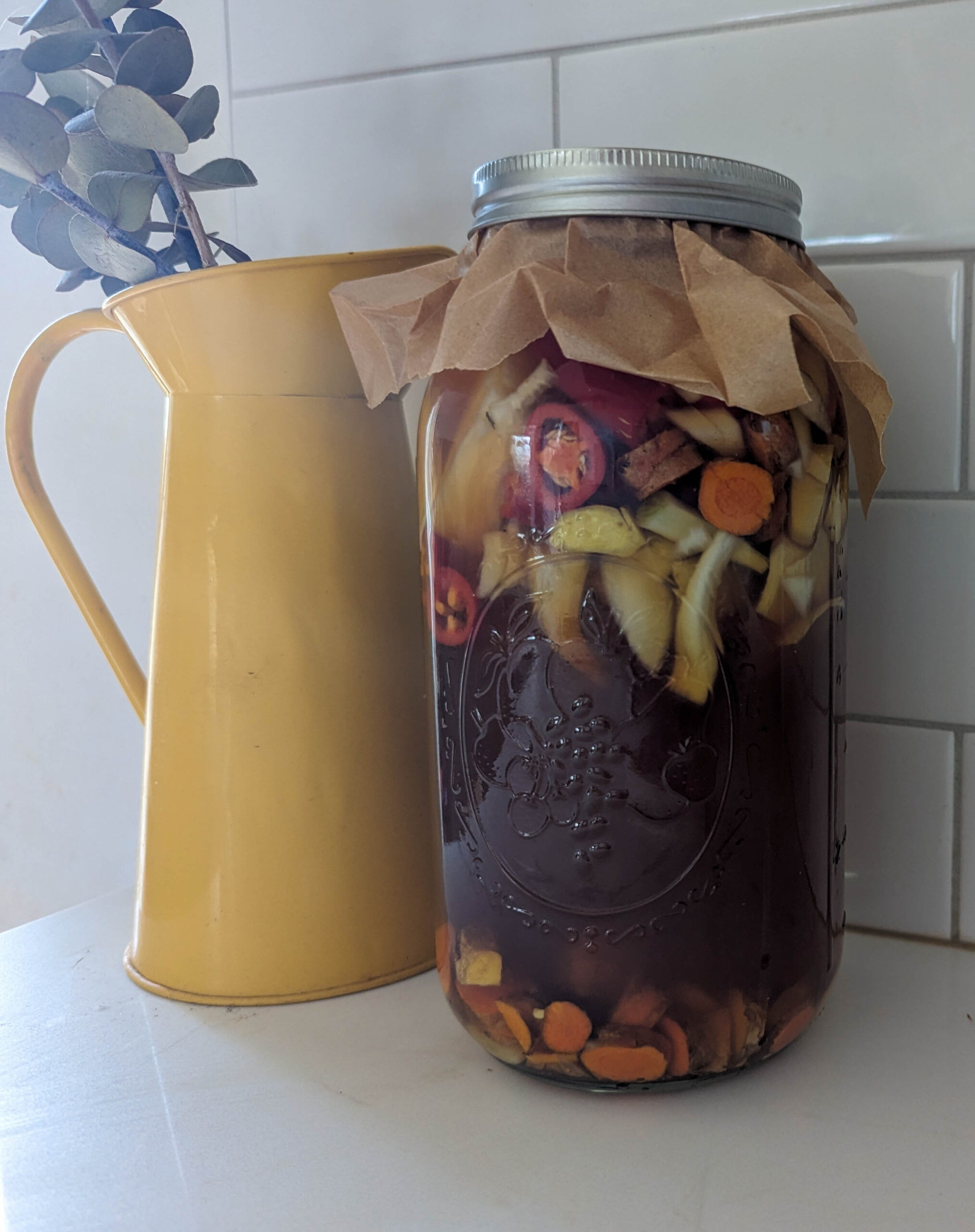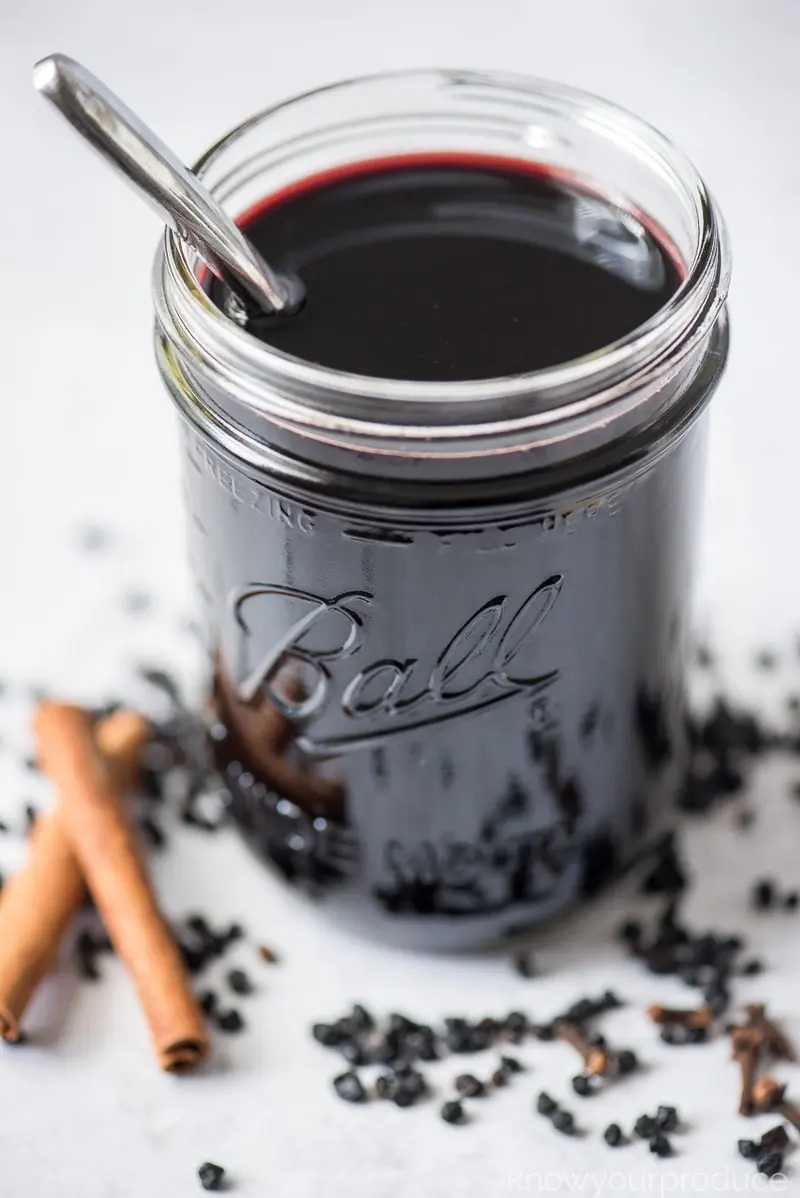Best Herbs for Arthritis: Natural Pain Relief Remedies
As a mom of five and an RN, I’ve spent a lot of time searching for the best herbs for arthritis to help my own mother, who has been struggling with severe arthritis. Watching her deal with the pain and stiffness has shown me just how much this condition can impact daily life. Arthritis affects millions, making even simple tasks feel overwhelming.
In this post, I’ll focus on natural remedies, specifically herbs, that can help reduce arthritis pain and improve joint function. From my personal experience with my mom and my clinical knowledge, I’ve seen these remedies offer real relief.
For those unfamiliar, arthritis is a broad term that includes over 100 different conditions affecting the joints. The most common types are rheumatoid arthritis, an autoimmune disease, and osteoarthritis, where joint cartilage wears down over time. Both cause pain and stiffness, and finding gentle, natural solutions can make all the difference.
Save For Later!
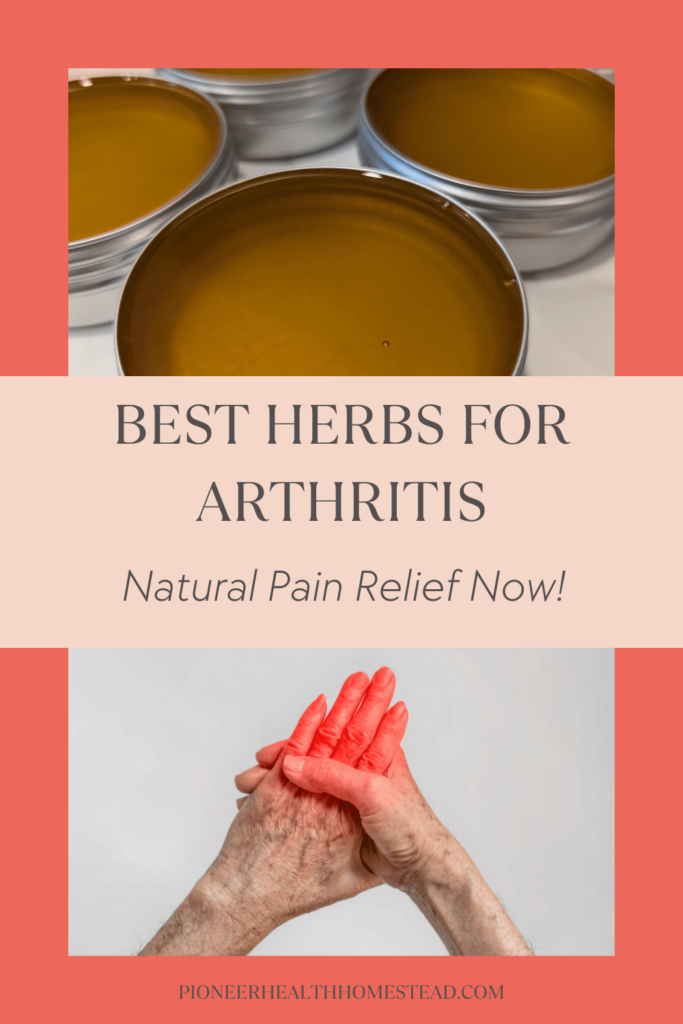
Understanding Arthritis and Its Symptoms
Arthritis is essentially a general term used to describe joint pain or joint disease. While there are many types of arthritis, they all share common characteristics that make everyday movements challenging. Whether it’s in the knees, hands, or back, arthritis can cause discomfort that makes simple tasks like getting dressed or walking up stairs painful.
The most common symptoms of arthritis include joint pain, inflammation, stiffness, and a reduced range of motion. You may notice your joints feeling swollen or tender to the touch, or that they don’t bend as easily as they once did. For many, these symptoms worsen with age, but arthritis can affect people of all ages.
Autoimmune diseases, like rheumatoid arthritis, complicate things further because they involve the body’s immune system attacking its own tissues. This type of arthritis doesn’t just cause pain—it can also lead to long-term joint damage. The immune system’s role in this process makes rheumatoid arthritis especially challenging, as it often leads to more severe inflammation and joint deformities over time.
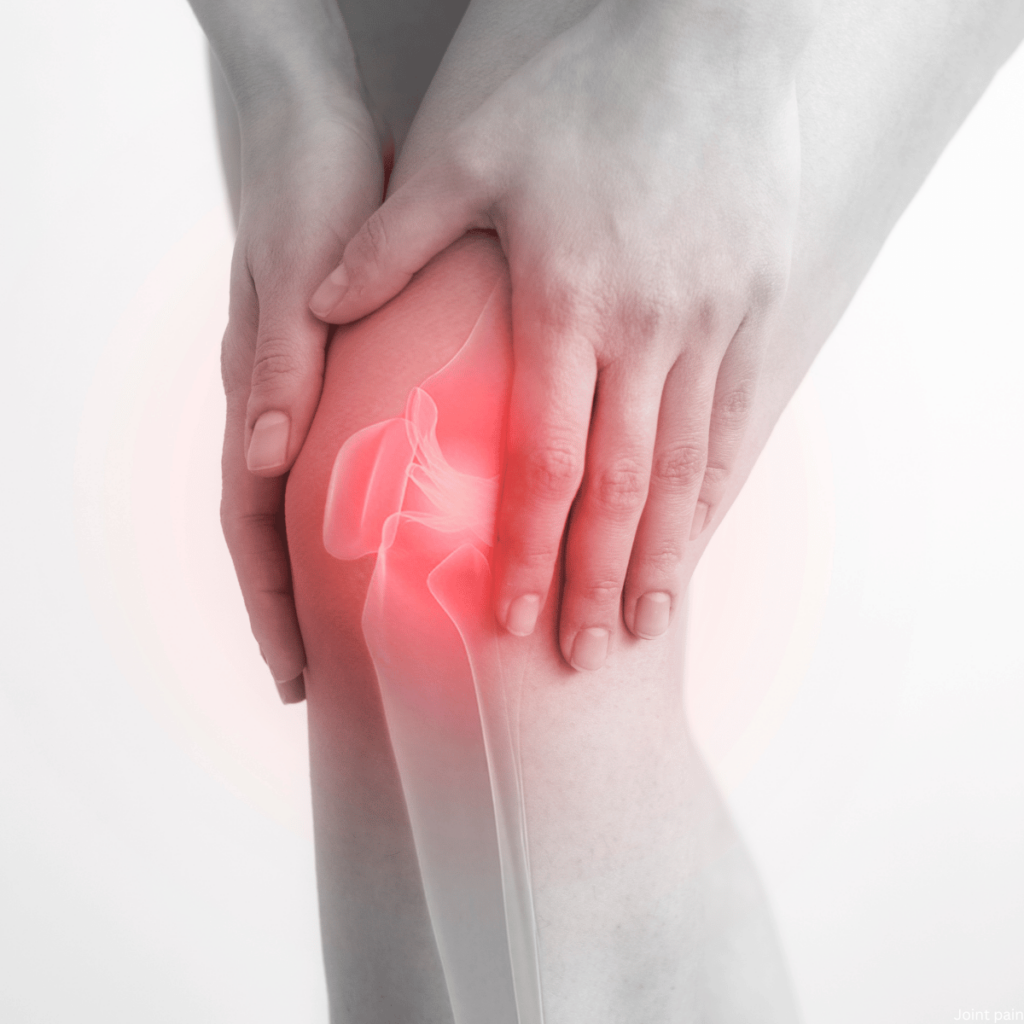
The Role of Anti-Inflammatory Herbs in Arthritis Management
Managing arthritis often involves tackling inflammation, which is a primary source of pain and stiffness. Certain herbs have natural anti-inflammatory properties that can help alleviate these symptoms, making them valuable allies in the fight against arthritis discomfort.
Arnica is well-known for its ability to soothe muscle and joint pain. When used topically, it can reduce inflammation and improve circulation in the affected areas. To harness this herb’s benefits, I’ve created a Pain Salve available at my local and online shop. This salve combines arnica’s potent anti-inflammatory effects with other soothing ingredients to help relieve joint pain and improve mobility. It’s been especially helpful for my mom, and many others have found it to be a gentle, effective option for arthritis pain. I’ve had many customers use the tester in the shop and before they leave proclaim how it’s already working for them!
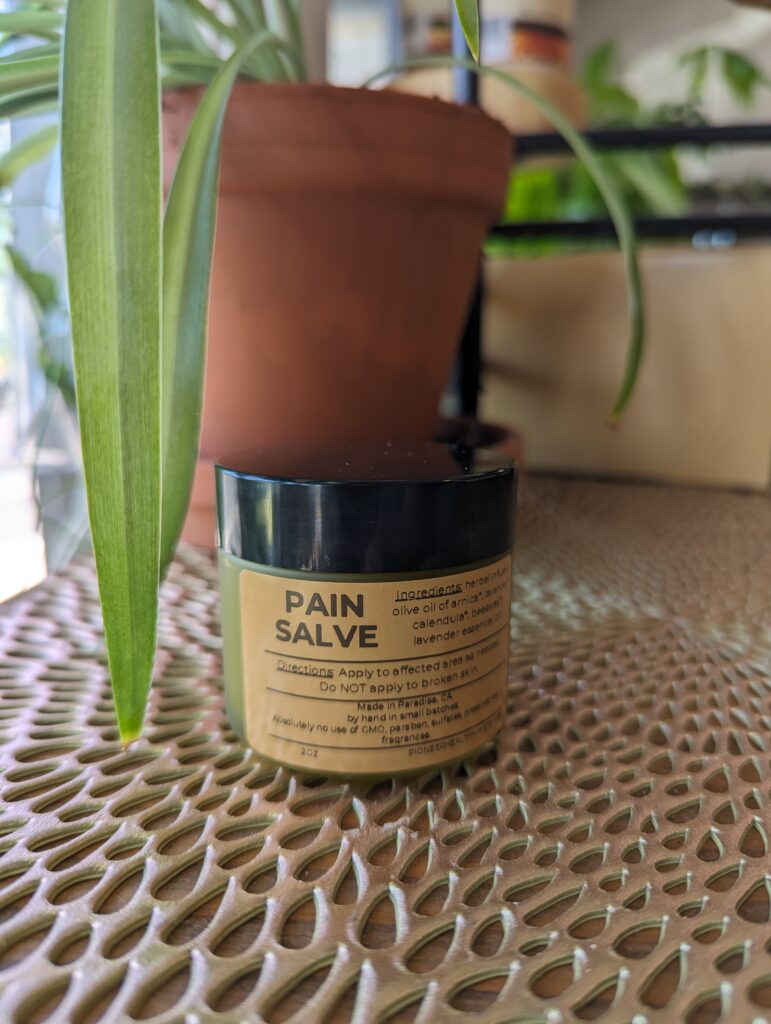
On the other hand, cayenne pepper is renowned for its capsaicin content, which blocks pain signals and reduces inflammation. My Arthritis Salve, also available at my local and online shop, uses capsaicin to provide targeted, warming relief for aching joints. This salve has been a game-changer for those suffering from chronic joint pain, offering quick and effective relief without harsh chemicals.
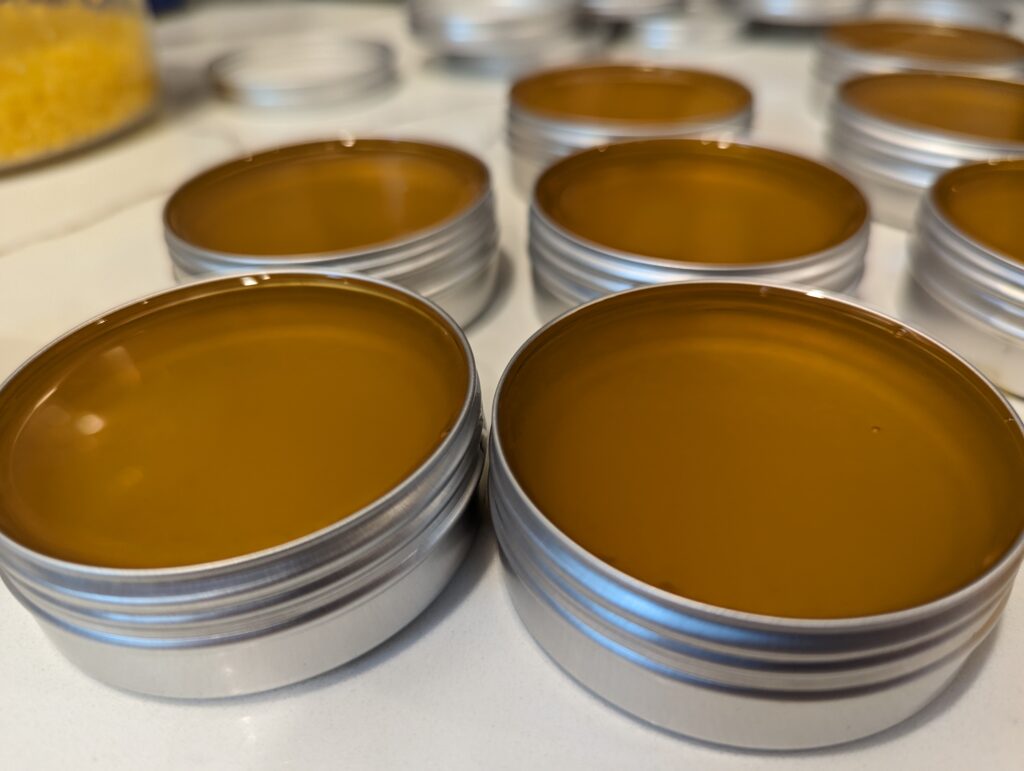
Both of these salves leverage the power of natural herbs to offer relief from arthritis pain. Whether you’re looking for the anti-inflammatory benefits of arnica or the pain-blocking effects of capsaicin, these salves are excellent additions to your arthritis management routine. They provide a natural, gentle alternative to traditional pain medications, with fewer side effects and added comfort.
Top Herbs for Arthritis Relief
Cayenne Pepper (Capsaicin)
Active Compound: Capsaicin
Capsaicin, the active compound in cayenne pepper, works by blocking pain signals from reaching the brain. This effect makes it highly effective for relieving arthritis pain when applied topically. Capsaicin reduces the concentration of substance P, a neurotransmitter that transmits pain signals, thereby alleviating discomfort.
Health Benefits
The topical application of capsaicin has been shown to provide significant relief from arthritis pain. It offers a warming sensation that soothes sore joints and can improve mobility. My Cayenne Pepper Arthritis Relief Salve, available at [Vine & Branch Shop](insert link), harnesses the power of capsaicin to target arthritis pain directly where it hurts. It’s an excellent natural remedy that many have found effective in managing chronic joint pain.
Boswellia Serrata (Indian Frankincense)
Active Ingredients: Boswellic Acid
Boswellic acid is the key anti-inflammatory component in boswellia serrata. This compound helps reduce inflammation and improve joint function by inhibiting pro-inflammatory enzymes.
Health Benefits
Boswellia serrata is effective in reducing inflammation and enhancing joint function. Its ability to target inflammatory pathways makes it a valuable herb for managing arthritis symptoms. Clinical studies have shown that boswellia can lead to significant improvement in arthritis symptoms, making it a widely recommended option.
Scientific Evidence
Numerous clinical studies and systematic reviews highlight boswellia’s effectiveness in managing arthritis. Research demonstrates that boswellic acid can significantly reduce joint pain and inflammation, providing substantial relief for arthritis sufferers.
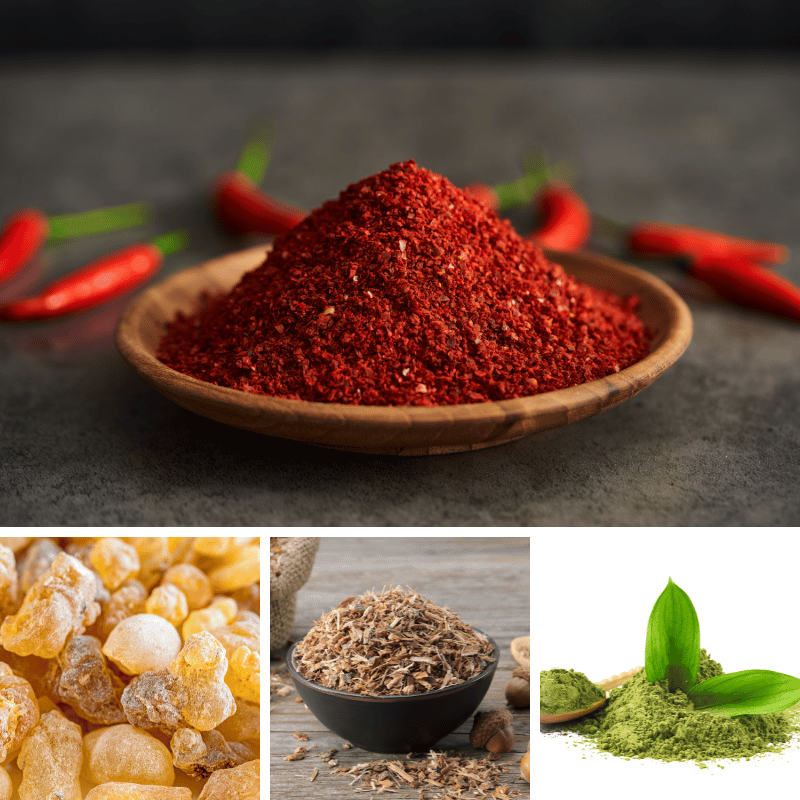
Willow Bark
Active Compounds: Salicin
Salicin is the primary compound in willow bark, known for its pain-relieving properties. It works similarly to aspirin by inhibiting pain-causing enzymes in the body.
Comparison to Modern Pain Relief
Willow bark’s effects are comparable to those of aspirin, providing natural pain relief with fewer side effects. However, it’s important to use it cautiously, especially if you’re on blood thinners, as it can interact with these medications.
Precautions
Willow bark can interact with blood thinners and other medications, so it’s crucial to consult a healthcare provider before use.
Green Tea
Anti-Inflammatory and Antioxidant Properties
Green tea is rich in polyphenols, which have powerful anti-inflammatory and antioxidant effects. These compounds help reduce oxidative stress and inflammation, contributing to better joint health.
Impact on Joint Health
Regular consumption of green tea supports joint function and helps manage chronic inflammation. Its antioxidant properties also protect against joint damage and promote overall well-being.
Cat’s Claw
Medicinal Properties
Cat’s claw, used in traditional Central American medicine, has a long history of treating inflammatory conditions. It is believed to have immune-modulating effects, which can be beneficial for arthritis patients.
Effects on Immune System
Cat’s claw helps modulate the immune response, particularly useful for individuals with rheumatoid arthritis (RA). Its ability to balance the immune system can reduce joint inflammation and improve symptoms.
Devil’s Claw
Pain Relief and Anti-Inflammatory Effects
Devil’s claw is known for its ability to relieve pain and inflammation associated with arthritis. It helps reduce joint discomfort and improve mobility.
Long-Term Use
While devil’s claw is effective for pain relief, it’s important to use it with caution over extended periods. Potential side effects with long-term use may include digestive issues, so monitoring and consultation with a healthcare provider are advised.
Thunder God Vine
Potent Anti-Inflammatory Herb
Thunder god vine is a powerful anti-inflammatory herb that influences inflammatory cytokines and tumor necrosis factor. It offers strong relief from arthritis symptoms by targeting multiple inflammatory pathways.
Cautions and Side Effects
Due to its potency, thunder god vine should be used carefully. It may have potential toxicity and should be used under the guidance of a healthcare provider.
By exploring these top herbs, you can find natural ways to manage arthritis pain and inflammation, offering relief and improving your quality of life.
Additional Herbal Supplements and Oils
In addition to the herbs mentioned, several other supplements and oils can further support arthritis management through their natural properties and benefits.
Borage Seed Oil
Gamma-Linolenic Acid
Borage seed oil is rich in gamma-linolenic acid (GLA), an omega-6 fatty acid known for its anti-inflammatory properties. GLA helps reduce inflammation in the body, which can be particularly beneficial for arthritis sufferers. By decreasing the production of inflammatory compounds, borage seed oil can help alleviate joint pain and improve overall joint function.
Essential Oils
Lavender and Other Essential Oils
Essential oils can offer targeted relief for arthritis pain through their anti-inflammatory and soothing properties. Lavender oil is well-known for its calming effects and ability to reduce inflammation, making it a great choice for easing joint pain and promoting relaxation. Peppermint oil provides a cooling sensation that can help alleviate pain and improve blood flow, while eucalyptus oil offers additional anti-inflammatory benefits.
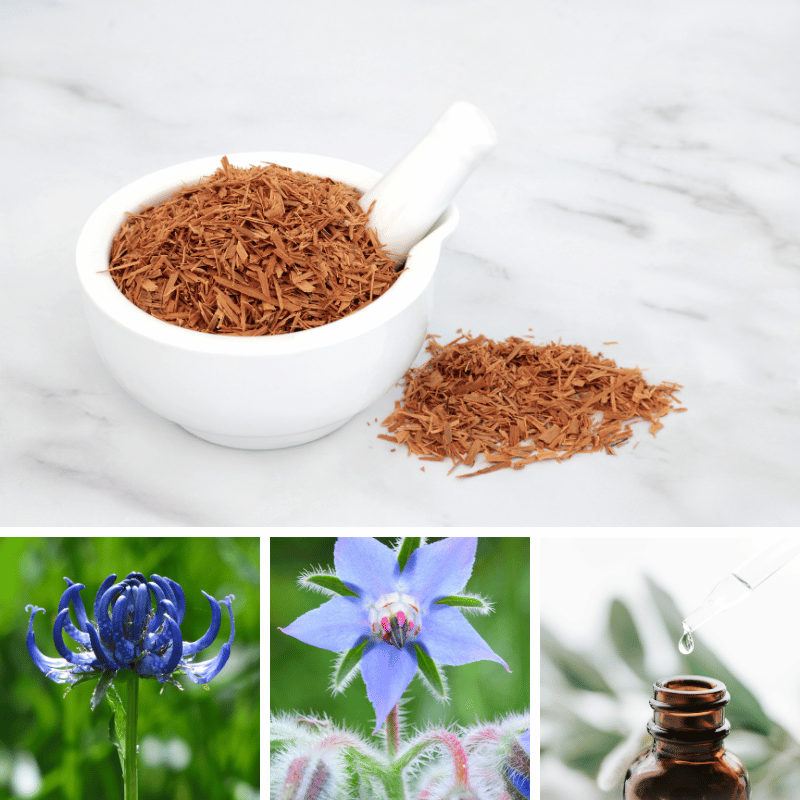
Using these essential oils in a carrier oil, such as coconut or olive oil, for massage can enhance their therapeutic effects. These oils can be applied to the affected areas to help soothe joint pain and stiffness, providing natural relief in your arthritis management routine.
Omega-3 Fatty Acids
Benefits for Joint Health
Omega-3 fatty acids, found in various oils and supplements, play a crucial role in reducing inflammation and supporting joint health. These essential fatty acids help modulate the body’s inflammatory response, which can reduce joint stiffness and discomfort associated with arthritis. Incorporating omega-3s into your diet can be a beneficial addition to your arthritis management plan.
Arnica Homeopathy Tablets
Complementary Relief
For a holistic approach to managing arthritis pain, consider arnica homeopathy tablets. These tablets are used in homeopathic medicine to address muscle and joint pain, bruising, and inflammation. They offer a natural, gentle remedy that complements topical treatments and can be especially useful for those looking for additional support in their pain management routine.
By incorporating these additional herbal supplements and oils, you can enhance your approach to managing arthritis, complementing other treatments and potentially improving your overall quality of life.
Complementary Approaches to Enhance Herbal Treatments
In addition to using herbal remedies, several complementary approaches can further enhance arthritis management. Integrating these strategies with your herbal treatments can provide a well-rounded approach to managing arthritis symptoms.
Diet and Nutrition
Anti-Inflammatory Diet
An anti-inflammatory diet focuses on reducing inflammation through dietary choices. It emphasizes the consumption of fruits, vegetables, whole grains, lean proteins, and healthy fats while avoiding processed foods, refined sugars, and excessive omega-6 fatty acids. Foods rich in antioxidants and omega-3 fatty acids, such as berries, nuts, and fatty fish, can help lower inflammation and support joint health.
Elimination Diet
Starting with an elimination diet is crucial for identifying and removing potential inflammatory triggers. This involves eliminating inflammatory cooking and seed oils, such as canola and vegetable oil, from your diet. By removing these processed oils and gradually reintroducing foods, you can pinpoint what exacerbates your arthritis symptoms and tailor your diet accordingly.
Carnivore Diet
The carnivore diet involves consuming only animal products, excluding all plant-based foods. Proponents believe that it can reduce inflammation and support joint health by eliminating potential dietary triggers and focusing on nutrient-dense meats.

Keto Diet
The keto diet is a high-fat, low-carbohydrate diet that shifts the body into a state of ketosis, where it burns fat for fuel instead of carbohydrates. This diet can reduce inflammation and provide energy for joint repair through a focus on fats, proteins, and low-carb vegetables.
Paleo Diet
The paleo diet emphasizes eating whole, unprocessed foods similar to what our ancestors might have eaten. It includes lean meats, fish, fruits, vegetables, nuts, and seeds while avoiding grains, legumes, and processed foods. This diet aims to reduce inflammation and support overall health by eliminating modern, inflammatory food sources.
Vitamin C
Vitamin C is crucial for collagen production, which supports joint health and repair. Incorporating vitamin C-rich foods, such as citrus fruits, bell peppers, and leafy greens, can help strengthen joints and reduce inflammation.
Physical Therapy and Regular Exercise
Role of a Physical Therapist
Physical therapy plays a crucial role in managing arthritis by improving joint function and mobility. A physical therapist can design personalized exercise programs to strengthen muscles, enhance flexibility, and reduce joint pain. Regular exercise, tailored to your specific needs, can help maintain a healthy range of motion and improve overall joint health.
Alternative Therapies
Massage Therapy
Massage therapy involves the manipulation of soft tissues to reduce muscle tension and improve circulation. For arthritis patients, massage can provide relief from joint pain, improve mobility, and enhance overall comfort. A qualified massage therapist can tailor techniques to address specific areas of discomfort and promote relaxation.
Bowen Therapy
Bowen therapy is a gentle, non-invasive technique that involves light, precise touches to stimulate the body’s self-healing mechanisms. It can help improve circulation, reduce pain, and enhance joint function. Bowen therapy is known for its effectiveness in treating chronic pain and inflammation, making it a valuable addition to an arthritis management plan.

Chiropractic Care
Chiropractic care focuses on diagnosing and treating musculoskeletal disorders, particularly those affecting the spine. Chiropractors use manual adjustments to improve alignment and function, which can help relieve arthritis pain and improve joint mobility. Regular chiropractic treatments can support overall joint health and reduce discomfort.
Other Forms of Alternative Medicine
In addition to Bowen therapy and chiropractic care, other alternative therapies such as acupuncture and aromatherapy can complement herbal treatments. Acupuncture may help alleviate arthritis pain by stimulating specific points on the body, while aromatherapy with essential oils can provide soothing and anti-inflammatory benefits.
Integrating Herbal Remedies with Conventional Treatments
Consulting Healthcare Providers
It is essential to consult with healthcare providers, including orthopedic doctors, physical therapists, chiropractors, and massage therapists, before integrating herbal remedies into your arthritis treatment plan. Combining herbal treatments with conventional medical advice ensures a comprehensive approach to managing arthritis and minimizes the risk of potential interactions or side effects.
By integrating these complementary approaches with herbal treatments, you can create a more effective and holistic strategy for managing arthritis, improving your quality of life, and supporting overall well-being.
Current Research and Future Directions
As the use of herbal remedies for arthritis management continues to grow, current research plays a critical role in validating their effectiveness and guiding future treatments. Here’s a summary of the state of research, along with a look at emerging treatments and the need for further investigation.
Scientific Evidence and Systematic Reviews
State of Research on Herbal Remedies for Arthritis
Recent studies and systematic reviews have provided valuable insights into the effectiveness of various herbal remedies for arthritis. For instance:
- Boswellia Serrata: Research has shown that boswellic acid, found in boswellia serrata, possesses significant anti-inflammatory properties and can improve joint function. A systematic review published in the Journal of Clinical Rheumatology highlighted its potential in reducing arthritis symptoms with minimal side effects.
- Willow Bark: Studies have demonstrated that salicin, the active compound in willow bark, offers pain relief comparable to aspirin. Research published in Phytotherapy Research supports its use for managing arthritis pain.
- Green Tea: Evidence suggests that the polyphenols in green tea can help reduce inflammation and support joint health. A study in the Journal of Nutritional Biochemistry found that green tea polyphenols can mitigate oxidative stress related to arthritis.
- Devil’s Claw: Clinical trials have shown that devil’s claw is effective in reducing pain and inflammation associated with arthritis. Research in BMC Complementary Medicine and Therapies supports its use for arthritis relief.
- Thunder God Vine: This herb has demonstrated potent anti-inflammatory effects, as noted in studies published in The American Journal of Chinese Medicine. However, due to potential toxicity, its use should be monitored closely.
- Cayenne Pepper (Capsaicin): Recent research highlights the benefits of capsaicin, the active compound in cayenne pepper, for arthritis pain relief. A 2013 study in Arthritis & Rheumatology found that capsaicin cream significantly reduced pain and improved function in osteoarthritis patients. Another systematic review in European Journal of Pain (2017) concluded that topical capsaicin is effective for chronic pain conditions. Further research published in Molecules (2018) and Journal of Cellular Biochemistry (2020) demonstrated capsaicin’s role in reducing inflammation and modulating inflammatory pathways.
Systematic Reviews
Systematic reviews have generally supported the use of these herbs, but findings vary. For example, a Cochrane review found that while some herbs show promise, the overall evidence is mixed and calls for further well-designed clinical trials to confirm their efficacy and safety.
Call for Further Research
Need for More Clinical Trials
Despite the promising results from current studies, there remains a need for more robust clinical trials to validate the therapeutic effects of herbs for arthritis. More extensive and well-designed studies can help clarify dosage, effectiveness, and safety, and potentially lead to more standardized recommendations.
Emerging Herbs and Natural Products
Research is ongoing into several emerging herbs and natural products that show potential for arthritis management. For example:
- Cat’s Claw: Preliminary studies suggest that this herb may help modulate the immune response in RA patients, but more research is needed to confirm its benefits.
- Cayenne Pepper: Capsaicin, the active compound in cayenne pepper, is being studied for its pain-relieving properties and potential application in topical treatments for arthritis.
These emerging herbs highlight the dynamic field of natural remedies for arthritis, where new discoveries could offer additional options for managing symptoms.
Safety Considerations and Potential Side Effects
When integrating herbal remedies into your arthritis management plan, it’s essential to be aware of safety considerations and potential side effects. Understanding how these remedies interact with prescription medications and other factors can help ensure safe and effective use.
Herbal Remedies and Prescription Medications
Interactions with Prescription Medications
Herbal remedies can interact with prescription medications, potentially altering their effectiveness or increasing the risk of adverse effects. For instance, some herbs may affect blood clotting, impacting medications like anticoagulants or blood thinners. It is crucial to discuss any herbal supplements you are considering with your healthcare provider to avoid harmful interactions. Always inform your healthcare team about all the medications and supplements you are taking to receive personalized advice and ensure a safe treatment plan.
Professional Guidance
Seeking professional guidance from a healthcare provider, such as a doctor or a pharmacist, is essential when incorporating herbal remedies into your regimen. They can help evaluate potential interactions, adjust dosages, and monitor for any adverse effects, ensuring that both herbal and conventional treatments work harmoniously.
Side Effects and Precautions
Potential Serious Side Effects
While herbal remedies can offer relief, they are not without risks. Some herbs may cause serious side effects such as:
- Stomach Ulcers: Certain herbs, like willow bark, can irritate the gastrointestinal tract, potentially leading to ulcers or gastrointestinal bleeding.
- Blood Flow Issues: Herbs with blood-thinning properties, such as garlic or ginkgo, may increase the risk of bleeding, especially if combined with other blood thinners.
- Interactions with Blood Thinners: Herbs like turmeric and ginger can interact with anticoagulants, potentially affecting blood clotting and increasing bleeding risks.
Precautions
To minimize risks, use herbs as directed and start with lower doses to monitor how your body responds. If you experience any adverse reactions or symptoms, discontinue use and consult your healthcare provider immediately.
Use in Special Populations
RA Patients and Autoimmune Diseases
For individuals with rheumatoid arthritis (RA) or other autoimmune diseases, additional precautions are necessary. Autoimmune conditions can affect how the body responds to both herbal and conventional treatments. It’s important to:
- Consult a Healthcare Provider: Before starting any new herbal treatment, especially if you have an autoimmune disease, discuss it with your healthcare provider to ensure it aligns with your overall treatment plan.
- Monitor for Reactions: Keep track of any changes in symptoms or new side effects when using herbal remedies, and report them to your healthcare provider.
- Consider Interactions: Be mindful of how herbal remedies might interact with immunosuppressive drugs or other medications used to manage autoimmune conditions.
By being informed about potential side effects and interactions, and by working closely with your healthcare team, you can safely incorporate herbal remedies into your arthritis management plan and optimize your approach to health and well-being.
Conclusion
Herbal remedies offer a range of benefits for managing arthritis pain, from reducing inflammation to supporting joint health. Herbs like boswellia serrata, willow bark, green tea, devil’s claw, thunder god vine, and cayenne pepper have demonstrated varying degrees of effectiveness, supported by scientific evidence and clinical trials. Complementary approaches, such as diet modifications and physical therapy, further enhance their benefits.
Encouragement for Safe Use
While herbal remedies can be a valuable part of an arthritis management plan, it’s essential to use them safely. Consult with your healthcare provider before starting any new treatment to ensure it fits within your overall health strategy and to avoid potential interactions with other medications.
Let Me Know!
Explore the potential of natural remedies to complement your arthritis treatment plan. Dive deeper into the benefits of herbs, consider integrating them into your routine, and stay informed about new developments in the field. Your journey to managing arthritis effectively can be supported by both traditional and innovative approaches to wellness.
Recent Blog Posts

Calendula Salve Recipe: How to Make
Sharing is caring! Facebook Pinterest X Calendula Salve Recipe: How to Make Why You Should Try This Calendula Salve Recipe This calendula salve recipe is a simple yet effective natural remedy with a long history of healing properties. Calendula, or calendula officinalis, has been cherished in herbal medicine for its ability to soothe and nourish…
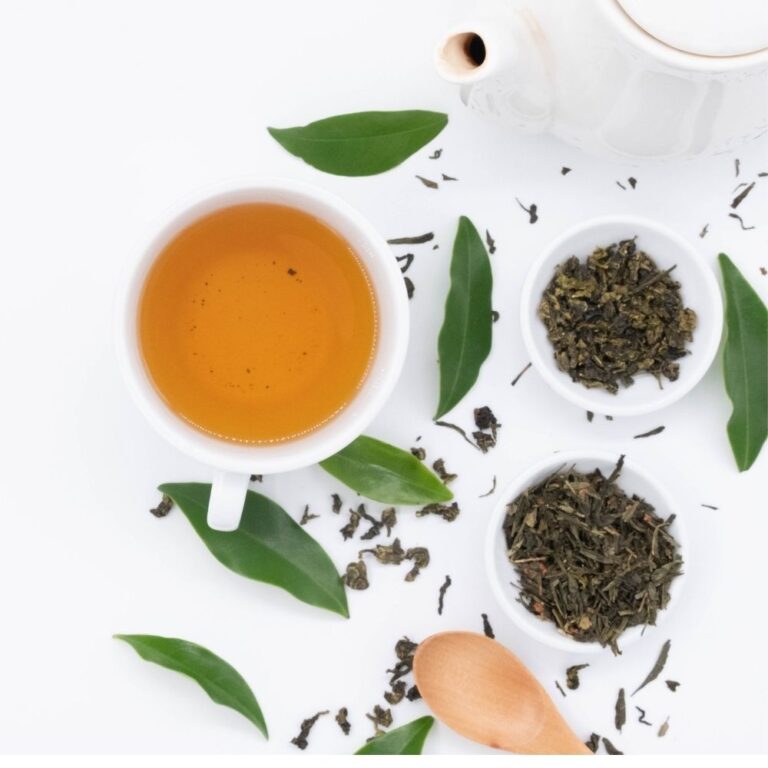
Green Tea Vs Herbal Tea: The Best Complete Tea Guide
Green Tea Vs Herbal Tea: The Best Complete Tea Guide Understanding the Differences Green tea vs herbal tea is a popular debate among tea lovers worldwide. Both offer unique flavors, health benefits, and caffeine content. Tea has a rich history and is enjoyed in many cultures. From Chinese green teas to herbal infusions in the…
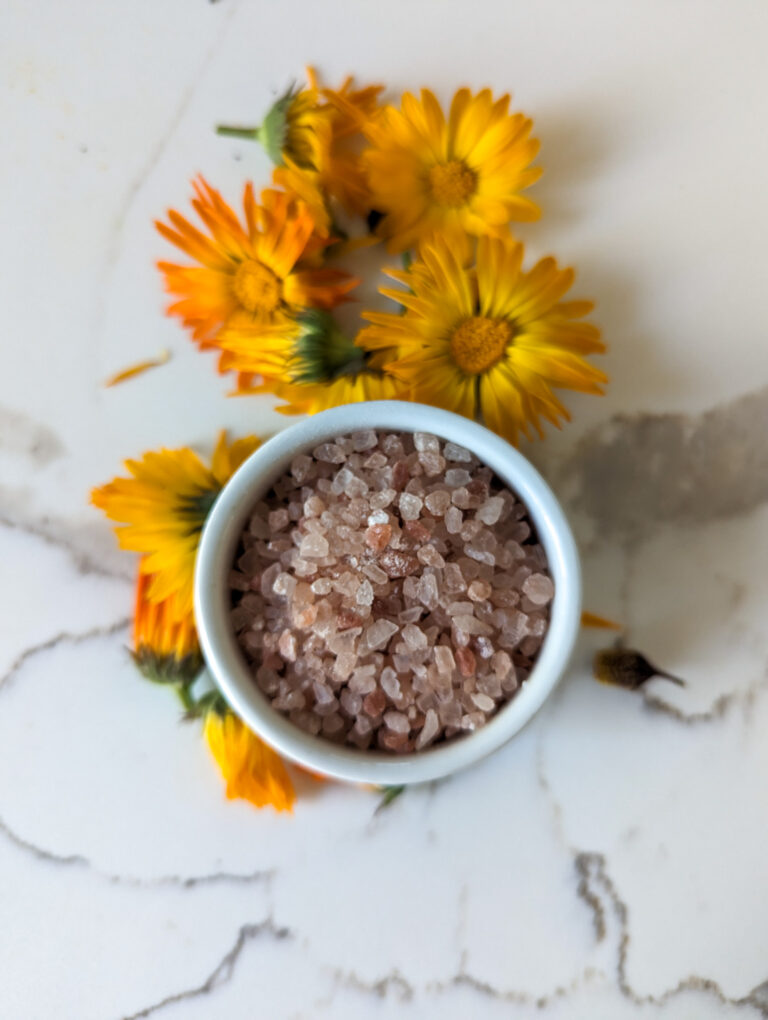
How to Make Bath Salts Without Epsom Salt: Free Recipe
How to Make Bath Salts Without Epsom Salt: Free Recipe How to Make Bath Salts Without Epsom Salt Homemade bath salts without Epsom salt are a great way to enjoy a luxurious soak. You can use natural ingredients like coarse sea salt, baking soda, and pink Himalayan salt for a soothing experience. A relaxing bath…

Homesteading in California: How to Start at Any Stage
Homesteading in California: How to Start at Any Stage How Homesteading in California is Possible Homesteading in California is a journey that looks different for everyone, depending on where you live in this vast and diverse state. From the deserts dotted with Joshua trees in the south, to the rugged mountain ranges in the north,…
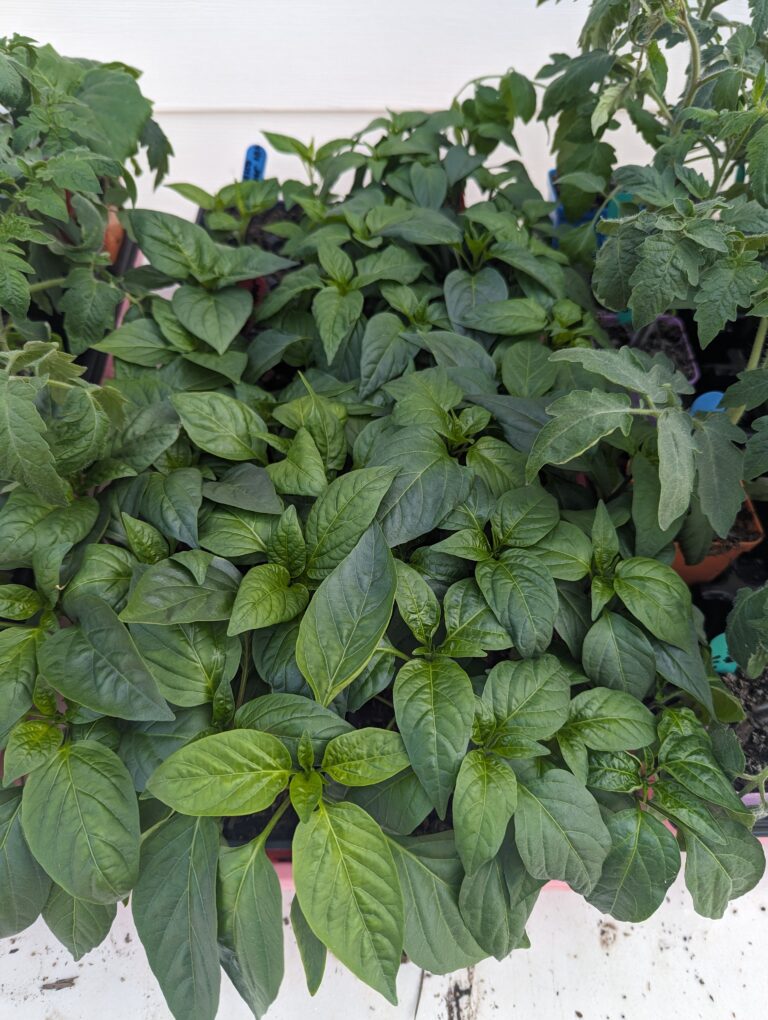
How to Make Peppers Grow Faster: Guide and Easy Tips
How to Make Peppers Grow Faster: Guide and Easy Tips How to make peppers grow faster is a common question among home gardeners seeking to maximize their growing season. Whether you’re nurturing sweet peppers, green peppers, or hot pepper plants, creating ideal conditions is essential for pepper success. The best way to achieve healthy pepper plants…

The Different Types of Cloth Diapers: Ultimate Guide
The Different Types of Cloth Diapers: Ultimate Guide The different types of cloth diapers offer a sustainable and eco-friendly alternative to disposable diapers for your baby. As a mom of five and a Registered Nurse, I’ve seen the many benefits of reusable cloth diapers firsthand. This guide will help you understand the major types of…

